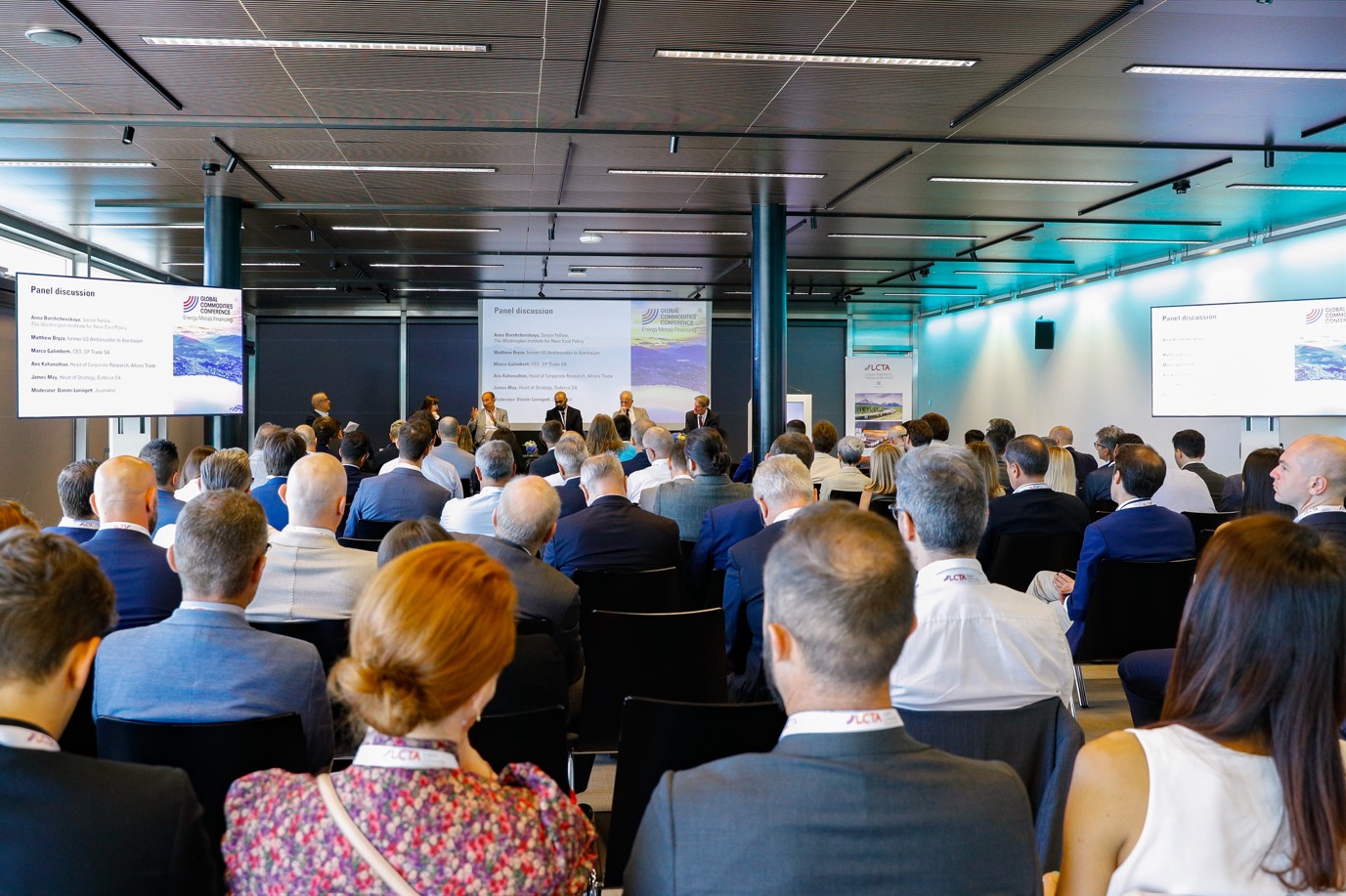Press Release | Commodities: the Global Commodities Conference returns to Lugano

The “Global Commodities Conference”, the Lugano Commodity Trading Association’s (LCTA) flagship event, has returned to Lugano two years after its previous edition. In fact, the commodities world gathered on July 1 and 2, 2024 to examine and analyze the new geopolitical dynamics and the energy transition, as well as their impact on global commodity markets.
Global geopolitics and trade patterns are rapidly changing. Tensions in the Middle East, in particular, are putting a strain on key commodities, affecting trade routes and supply chains. For its part, the “green transition” is generating major problems about sustainable sourcing and commitment to ethical commodity manufacturing, as well as increasing demand for clean energy-related raw materials. The Global Commodities Conference 2024, organized by the Lugano Commodity Trading Association (LCTA), provided an opportunity for Swiss and international commodity traders, as well as banks and insurance companies active in the sector, to participate in a meaningful discussion on these issues and confirm how commodity trading can cope with global fragmentation and a new world order by navigating operational complexity, making necessary adjustments and capitalizing on new trading opportunities.
The 2024 Conference kicked off on July 1 with an inaugural dinner at SEVEN Restaurant in Lugano. Following introductory remarks by LCTA Vice President Roberto Grassi, Yves Rossier, former Swiss Ambassador to Russia, delivered a caustic and stinging address on a monobloc world, the cause-and-effect links between war, trade and sanctions, and Switzerland’s increasingly irrelevant role in the global diplomatic theater.
The Conference continued the next day at LAC Lugano Art and Culture, with President Matteo Somaini delivering the opening remarks followed by two sessions.
In the first session, Matthew Bryza, former U.S. ambassador to Azerbaijan, discussed the new Middle East chessboard and the different chess pieces. Following his remarks, foreign policy scholar Anna Borshchevskaya, Senior Member of The Washington Institute for Near East Policy, Marco Galimberti, CEO of DP Trade SA, Ano Kuhanathan, Head of Corporate Research at Allianz Trade and James May, Head of Strategy at Duferco SA, and Matthew Bryza himself participated in a panel moderated by Corriere del Ticino journalist Dimitri Loringett. The panel of analysts and industry leaders examined the effects of the conflict on commodity trade and shipping, from logistical aspects to rising costs and risk management, highlighting how the negative effects of uncertainty have spilled over to Europe and in particular its “locomotive” (Germany), which is becoming less competitive, but not forgetting the opportunities presented by the Middle East, which is now a key player in the energy transition.
The second session was led by Deia Markova, Head of Trade Commodity Finance at Société Générale Corporate & Investment Banking (SGCIB), who discussed the “greening” of commodities and the “decommoditization” of the sector, as a result of the energy transition, as well as how commodity producers and traders can adapt to this shifting environment. Simone Knobloch, COO of Valcambi SA; Giulio Macciocchi, Head of Finance & ESG at DXT Commodities SA; Stephen Thomas, Head of ESG & Sustainability at ArrowResources AG; and Deia Markova herself discussed the topic in a panel moderated by Dominique Bruggmann, Manager Financial Services Risk Consulting at Ernst & Young AG. The panelists emphasized the role of carbon markets in the transition to decarbonization as well as the fact that customers and financial institutions are increasingly demanding commodities from sustainable and responsible sources, they also acknowledged the risk of overregulation and the need to find solutions that work for everyone.
The closing remarks were given by LCTA President Matteo Somaini, who shared his “takeaways”, including: the relativity of concepts such as multipolarity, volatility and stability; the possible emergence of a new paradigm in which politics predominates over economics; the need for traders to capitalize on transitions, particularly the energy transition, and how the latter goes hand in hand with a “resource-less transition”, which requires the implementation of new market approach strategies.
It was an intense and thought-provoking Conference with networking opportunities that brought together over 150 industry professionals in Lugano from across Switzerland as well as major centers such as London and Dubai.
Retrospective Global Commodities Conference 2024: a summary of the topics covered and a selection of photos can be found on our website on the dedicated page.


